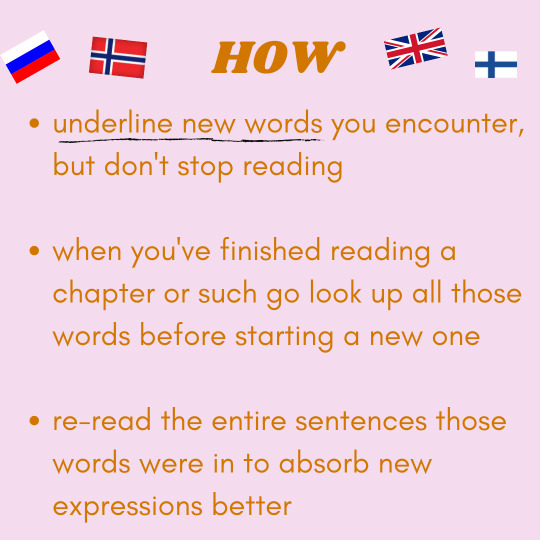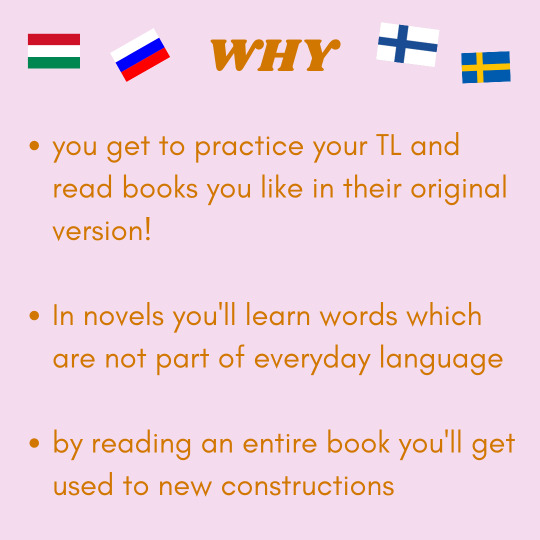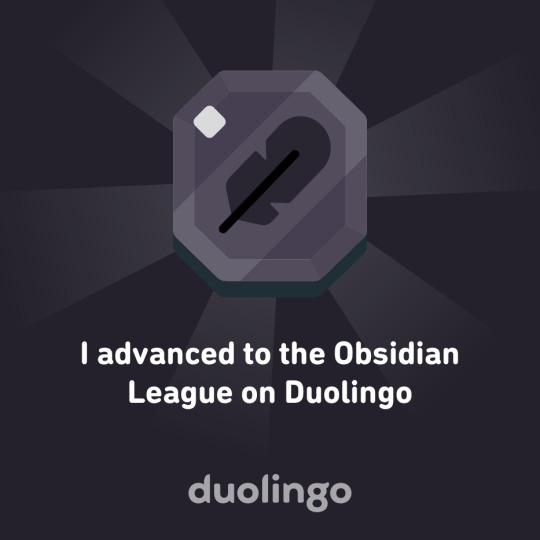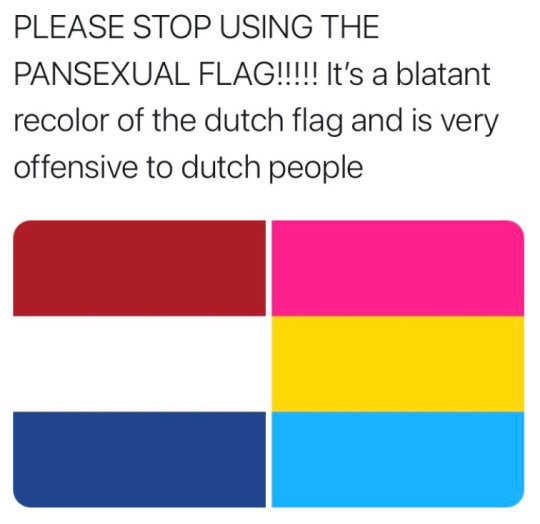Hi im short and and i like learning languages. TL: ASL, Spanish, Swahili
Last active 60 minutes ago
Don't wanna be here? Send us removal request.
Text
To be honest I need better motivation to continue my Spanish studies and not just to fulfill my streak on Duolingo and go about my day. Any suggestions?
#Music!!!!#I've got like 15 songs I like in Spanish and whenever one of them comes on I go and study for another 10.#plus it gave me an appreciation for spanish music which led me to go and find more genres in Spanish#pronunciation and translation of the lyrics is really fun too#maybe get a different app too
39 notes
·
View notes
Link
I think my fellow langblrs might get some use out of this
Hello users, in the new update of Google, you can also play google word coach game in other languages also. when you search on chrome browser. on the right-hand side, you can open the same result in your language. Then you will see the word coach questions in your language. For example, if you are an Indian user and want to play the game in Hindi or other regional languages then you can also do so. Here I am sharing a screenshot for the same. ��For More Info. Visit - https://www.googlewordscoach.com/
https://www.googlewordscoach.com/2020/05/how-to-play-google-word-coach-in-my-language.html
3 notes
·
View notes
Text
Estoy tan feliz de que en esta casa mi ventana esté más cerca de mi cama. Puedo sentarme y sentir el viento, es muy encantador.
2 notes
·
View notes
Text
50 nouns in Spanish
I tried to narrow these down to nouns you might find useful in everyday life to beef up your vocab
el calvario = an ordeal, agony / an arduous task that one must undertake, “one’s cross to bear” [lit. “Calvary”, referring to the place Jesus was crucified; in Spanish el calvario is interpreted as “stations of the cross” or the reenactments of the Passion of Christ… but in common Spanish, el calvario is used as “a task that is pretty much torture” or something that someone feels they must do… “a cross to bear” in the same etymology]
el bullicio = hustle and bustle, busy activity / noise (from a lot of people or chatter), ruckus
el deseo = desire / wish pedir un deseo = to make a wish [lit. “to request a wish/desire”]
el consejo = council (a group of people) / counsel, advice [also used in the context of “legal council”]
el logro = achievement, accomplishment
el blanco = target [as opposed to blanco/a being “white”, or “white people”]
el susto = a fright, a scare, a shock dar un susto = to surprise, to shock someone, “to make someone jump” or “to give someone a scare”
la racha = a gust / a good or bad period la buena racha = “lucky streak”, string of good luck la mala racha = “unlucky streak”, string of bad luck (estar) en racha = “(to be) on a roll”, “(to be) in the zone”
el renacimiento = rebirth, revival [sometimes understood as a “golden age” often for science or literature as a kind of boom, or it means the “revitalization” or “reawakening” of certain trends, ideas/ideals, fields of study, fashions, or literature that had been out of fashion or not as prominent previously] el Renacimiento = Renaissance
la quimera = chimera (fantasy) / a fantasy, a dream with no basis in reality, a pipe dream
la prueba = test, quiz / evidence, proof
la hacienda = plantation, plantation house / estate / property, estate la Hacienda = the IRS, tax office
el peligro = danger, risk el riesgo = risk
el legado = legacy / inheritance, something bequeathed
el antojo = whim, whimsy / craving, desire [I have also sometimes seen antojo used as “snack” or “appetizer” in some menus, also sometimes as antojitos]
la gestión = management, administration / process, “paperwork”
el alambre = wire, cable el alambre de púas = barbed wire [lit. “wire of spikes/barbs”]
el faro = lighthouse [sometimes euphemistically el faro is used as a “beacon” or “guiding light”]
el parecer = opinion el cambio de parecer = “a change of heart” [could also be cambio de opinión]
el zumbido = buzz, hum, droning sound
el cometido = task, mission, mission statement
la pata = leg / paw (animal, usually but not always) meter la pata = “to mess up”, “to step in it”
la punzada = sharp pain, a jabbing pain / “twinge”, “pang”, sharp negative feeling la punzada de culpa = “twinge of guilt”
la época = time period, age, epoch, “period” (a default word for a specific time period, often used in the contexts of history and literary movements) la época medieval = the Medieval period la época colonial = the colonial period la época precolombina = the pre-Columbian period (the time period before Christopher Columbus landed in the Americas; used in Latin America to mean before the indigenous people had contact with Europe)
el santuario = sanctuary, shrine / refuge, sanctuary
el vaivén = “ups and down” (literally and figuratively) / something that fluctuates / a swaying motion, a rocking motion (often the ocean)
el obsequio = gift or present (but fancy) / tribute
el conjunto = group, grouping, combination
el vínculo = bond, tie, link
el peso = weight [physical and emotional, may also be understood as “burden”… and in some situations, the peso is a unit of currency]
la prenda = garment, article of clothing
el hito = milestone, important event
la fiera = beast, wild animal / fiend
el ejemplar = the original, prototype, model / copy (of a book or magazine) ejemplar = exemplary
el hueco = an empty spot, a gap / “an opening” (in one’s schedule, or a “job opening”) hueco/a = hollow, empty
el bálsamo = balsam / a balm, something that soothes or eases pain or discomfort
el don = a gift, a blessing el don de gentes = “good people skills”, social graces, social butterfly el don de (la) palabra = “gift of gab”, “good with one’s words”, eloquent [usually used with tener “to have”]
la potencia = power, potency, strength / power (in physics) / a superpower (in politics or global power)
la ficha = chip, token, tile, game piece / index card, ticket, certificate / token [any kind of game piece, domino, checker, casino chip, tile, etc etc etc is a ficha (especially in gambling) or la pieza “piece” (particularly in chess or games with unique pieces)]
el olvido = oblivion, obscurity
el patrón = pattern [also, el patrón or la patrona is “patron” or “sponsor”… sometimes it’s “boss” or generally the person in charge]
el género = gender / genre (of literature/tv) / genus, type
el argumento = reasoning, argument [in someone’s thinking, not a loud “argument” usually] / plot, plotline, storyline, premise
el engaño = deceit, a trick
el horizonte = horizon / skyline, view of the city / limits, boundary [also means “horizon” the same way English uses it like hay nubes en el horizonte “there are clouds on the horizon” to mean something ominous coming]
el descuido = a mistake or slip-up, oversight, neglect, carelessness
el adefesio = something extremely hideous or unsightly, an eyesore
la moda = fashion, style estar de moda = to be in fashion, to be fashionable (estar) pasado/a de moda, (estar) fuera de moda = to be out of style, to be out of fashion, to be unfashionable
el matiz = nuance / shade, hue (of colors)
el plazo = time period a corto plazo = short-term a largo plazo = long-term
357 notes
·
View notes
Text
Comencé a torcerme el cabello a las ocho en punto de esta mañana. A las cinco de la tarde solo terminé diez turnos. Ugh
No tengo la paciencia para esto.
Por favor, corríjame si cometí un error
0 notes
Text
Bug time ADHD and I'm in the same boat as you, nothing sticks quite as well as Duo. (YouTube is a close second)
I have a friend at work who I've bended with about language learning. It's rather interesting. He hates DuoLingo whereas I have found it's the only language app/program, aside from maybe Drops, that works for me.
He rec'd Mango, which I gave a try, but it just does not click for me. I've tried Babbel, which is ok but doesn't click near as well. I've tried several other highly rec'd programs and even used Rosetta Stone for a while. None of which got me anywhere and I got bored of really easy. Or the designs are so awful that I can't stand to look at it much longer than a minute or two.
I'm curious though. What is your opinion of DuoLingo and do you have ADHD?
I've noticed my non-ADHD friends don't connect with Duo whereas my ADHD friends, like me, adore it. But I don't know if there's any connection. If anybody knows of any studies and such done on this, please let me know. I'm really curious.
98 notes
·
View notes
Text
A bit about non-binary Spanish and thoughts on mistranslations and grammar
This will be long
(@thebusylilbee @spanishskulduggery may also like it)
I'm writing this post partially to inform people of how we do non-binary Spanish, and also to invite non-English speakers to think about their own languages. I will include thoughts on other languages I know and certain difficulties they face. Native English speakers are also welcome to reflect on the way it works in their language and on the influence their language has in the world.
First of all, I do not think English or the Internet as we know it is the creator of non-binary language, in any language. The first records of non-binary Spanish we have are from the 1970s, according to non binary linguist Ártemis López, so it is probably a solution found by the local community. For context, the Franco dictatorship finished in 1975, so writing down non-binary Spanish in the 70s was a bold move. Gay and trans people had been sent to labour camps during the dictatorship. I guess it also means that if there is written record from that time, it was orally used before.
As an aside, and only tangentially related, inclusive language (using "men and women" instead of "men", for instance) was widely used in Spanish legal (and other) documents in the middle ages and up to the 17th Century, so "new" solutions are actually something people had done before.
And that is for historical context on the matter.
Now, generally speaking, how does Spanish grammar work?
Spanish is a gendered language. Nouns and adjectives tend to mark the gender of the subjects and objects almost constantly. There are some nouns and adjective that never change and are the same regardless of gender, but the tendency of the language is to show, to mention the difference. This applies to people, animals and things, even abstract concepts have grammatical gender.
La casa es grande, bonita y amplia. - The house is big, pretty and large.
El coche es grande, bonito y amplio. - The car is big, pretty and large.
La tristeza - The sadness. El amor - The love.
Notice that "grande" doesn't change, but the other adjectives do change. That is generally how this works. There are lots of other examples for either, but it would make a super long post, so just a glimpse.
Also, Spanish has a lot of verbal conjugations and they all show the subject (who does what), so very often we don't need pronouns at all. Personal pronouns can be used or not in many occasions, so it is relatively easy to avoid using one. Possessive pronouns do not refer to the person, but to the object and often have no marker either (mi vs mío, for instance, where "mi" has no gender marker but "mío" does, and still is a reference to the owned object).
"This is her brother" in Spanish would be "Este es su hermano". Notice that in bold is what marks gender in English, and in italics what marks gender in Spanish. They do not relate to the same things, so each has its own problems and solutions.
This happens with many other languages in many interesting ways. In Russian, for instance, also a very gendered language where personal pronouns can drop in sentences, has declensions (so extra gender markers), but also the verbs in the past form have a gender marker so "He studied a lot" could be "[On] Mnogo utchil", where [On] can be dropped, but the gender is still there.
Why do we ask for pronouns then if they can disappear?
That is a mistranslation from English. People in English started using "my pronouns are she/her", the Internet is English, people saw it and liked it and copied it. There is a switch happening in many languages (including English) where "pronoun" is starting to mean "grammatical gender" and even "personal gender". In itself, it is not necessarily bad but it may make things unclear. This is a solution, but it has certain limitations.
First of all, real-life gender and grammatical gender may not match. In Russian, the word for "man" is grammatically feminine. As a noun, it has a feminine ending, but the adjectives attached to it will be masculine. In German, "young girl" is grammatically neutral.
In English, who prides itself in being "not very gendered", people mark gender for objects and people in creative ways. Most machines and vehicles are feminine and not "it" but a "she". And then men don't make buns or use eyeliner, do they?
As a matter of fact, "gender" itself started being used for people after being a technical term for speaking about grammar. But that is completely irrelevant now as its meaning has evolved and most people don't know this.
So "pronoun" which originally is a word used instead of a noun (to avoid repetition and help clarify meaning) is now becoming "grammatical and personal gender" in a very interesting turn of phrase. "My pronouns are _third person pronouns_" is interesting because I would never use third person pronouns for myself, to begin with. Other people use them about me. Again, irrelevant as nobody thinks about this or uses it this way and it has found a way to convey meaning and solve a problem.
In languages other than English, they translated (so to say, this is not translating) the sentence like that and became even more interesting. "Mis pronombres son ella" making one pronoun plural, because we only mark one pronoun in Spanish.
Now, here is the really interesting part of this: pronouns are the least of our problems in Spanish. Knowing someone's pronouns may not help at all. I once saw someone creating a character with the pronoun "ello" and it does not help me (or anyone) figure out what nouns and adjectives go with it. In English you mark two, sometimes three options and you're done (ze/zir, for neopronouns), but if I made up the pronoun "eller", you could only go so far as to deducing what is the ending for nouns and adjectives. And "Ello", that already exists as a word, btw, would create superconfusing endings as it will assimilate with the masculine ones.
In Spanish, it works as well to say "I'm a woman" or just list some adjectives. The pronoun is just the tip of the iceberg.
As @thebusylilbee asked "what do you do with nouns and adjectives?"
What do we do, indeed. We created the morpheme -e for the oral version. The written version sometimes uses -x too (I personally don't like it because it can't be read out loud, it is a symbolic activism that is not accessible so I find it not very useful). In English you may have seen the "latine/latinx" debate, well, there you have it, that is what we do, and we do it with everything.
It works well, it sounds natural (we already had many nouns and adjectives ending in -e for non-gendered words and for some gendered words too). Some people have trouble using it, sometimes it is confusing with unfrequent idioms but it works.
Some examples (notice some words do not change ever):
El chico es alto y trabajador. Quería ser tenista, pero al final se ha hecho cantante.
La chica es alta y trabajadora. Quería ser tenista, pero al final se ha hecho cantante.
Le chique es alte y trabajadore. Quería ser tenista, pero al final se ha hecho cantante.
Now, the problem with this is that it is relatively new and it is also seen as informal language, so to say. So organisms, institutions, or anything considered formal or serious does not use it. What they do then is either double all the language (men and women, using masculine and feminine all over the text with makes it long and hard to follow, and also, leaves out non binary people) or avoid gender markers altogether.
This second option requires a lot of creativity and an excellent knowledge of your native language, but it is very inclusive and actually quite used.
For instance, if in an English movie, there is a non binary character going by "they/them", the translator may choose to use non binary endings in -e, but maybe the producer and the distributor in Spain won't allow it because it is too new or something. So the translator may find a way around that avoiding gendered nouns and adjectives, saying things like "Qué cansancio tengo" instead of "Estoy muy cansad_".
(This, btw, is something some trans people do in Spain before coming out of the closet, they get used to making turns of phrases that avoid making gender explicit).
In other languages all this may be easier or harder, depending on how does the grammar itself works. In turn, this may make coming out of the closer or expressing oneself easier or harder.
In French, for instance, it is a mess. The language itself makes it very hard to find a unifying strategy that works everywhere. They found some very creative solutions (possessive pronouns like maon), but other problems remain unsolved, like what do you do with things that sound the same but are written differently and you cannot really change? Like professeur/e/_??? or préféré/e/_???? I've seen writing like professeur.e. to force a reflection about it and seems to be the accepted standard but orally, it all sounds the same regardless.
You can find more examples on how other languages solve these problems in this twitter thread.
I think all this is worth thinking about because, specially here on tumblr or the internet, everything is in English and comes mainly from the US, so we tend to think that what they do or what they say is what works. And it probably doesn't work, linguistically, culturally or personally anyways.
For instance, there is this Spanish person I follow in twitter who says her gender is "butch", so she goes by lesbian and uses feminine nouns and adjectives because that's what "lesbiana" is in Spanish. She is non binary and has spoken about her personal choice on this, on why her gender is "lesbian butch" and on why the grammatical gender she uses with herself follows that lead.
Interestingly too, often in tumblr I read advice like "ask your friends to use x pronoun in front of you to see how it feels" and in Spanish you don't necessarily need other people to speak about you to test the waters. You can just speak about yourself, describe yourself to you and see the feel of it. Of course it helps to hear it from other people too, but it is almost impossible in Spanish to describe yourself in one sentence and not use a gender marker, so you can explore this on your own. This would happen in many many other languages too.
So yeah, basically some thoughts on gender grammatical expression coming from Spanish. I can detail some strategies if someone wants. If you have doubts, let me know, I like speaking about these things.
63 notes
·
View notes
Note
i don’t know what it’s called, but i was wondering if you could explain how spanish sometimes uses reflexive pronouns in order to talk about something of theirs
like i know they use it a lot with body parts like “me toqué los ojos” but i’ve also seen sentences like “un libro que me cambió la vida” and i was just wondering if there was any kind of rule of when you should use that construction versus just “my ____”
thank you!!!
I think when it's things like vida, alma, suerte etc you have two options
The issue here is when you use the indirect object pronouns [me, te, le, les, nos, os] or reflexives [me, te, se, nos, os] it technically marks ownership
In your example me cambió la vida it would sound awkward to then include a possessive
You could however say cambió mi vida "it changed my life" or mi vida cambió "my life changed"
In that case there wouldn't be anything in the grammar that marks possession, so in that particular construction the possessive adjectives make sense
With body parts it's often reflexives and so the person who's receiving the action is implied, so the person who "owns" the body parts is also implied
...
I'm not sure what exactly you'd call it. Spanish is adjusted in such a way that they try to avoid things that are redundant, so if it's understood, there's no need to specify. That's the same principle behind sujeto tácito when you don't include pronouns if the conjugation clearly shows who it is unless it's for added emphasis
But with this, it's a different kind of redundant
It comes down to something like: arruinó mi vida "it ruined my life" vs. me arruinó la vida "it ruined my life"
...Something where it's like it would read as too redundant to say "it ruined me my life" in Spanish so it just keeps the definite article
But in the case of things like this, there's the two ways to do it... indirect object + no possessive, or no indirect object + possessive
me cambió la suerte "my luck/fate changed" vs cambió mi suerte "it changed my luck/fate"
-
I will say though the use of the indirect object often seems more passive, as if something just kind of happened to you.
Using the plain verb + a possessive to me reads as more active, like it was a clear cause and effect or it was intentional
21 notes
·
View notes
Text
⬛⬛🟩🟩🟩
⬛🟩🟩🟩🟩
⬛🟩🟩🟩🟩
🟩🟩🟩🟩🟩
Wordle Day 11
This was, actually a lot of fun. Again i missed posting yesterday but i'm trying not to let it get me down. Les gooo
Prefiero usar 'piso' en lugar de 'suelo', pero eso también está bien. Creo que suelo y piso se traducen de la misma manera de todos modos.
0 notes
Text
I love the fact I reach a point where I keep learning english the way I learned my native language: through repeated exposition, almost subconsciously. Except now I'm capable of interpreting what's happening. I say "hippopotamus" the way Shane Madej said it in one his arguments with Ryan Bergara. I say "banana" like that line in Hellsing Abridged episode 2 but "bananas" like Game Grumps's random "the bananas has gone bad!" from whatever game they were playing. I have a more british accent when saying "it's getting better and better" because a figure skating commentator used to say it often. I'm sometimes tempted to use "y'all" because I kept stumbling upon it on the internet. I know the word "coveted" because of Puppet History and "forlorn" because of the game The Last Campfire. I learned about "Elf on the Shelf" because of the lyrics of Toss A Coin To Your Witcher, from the Netflix show. I say "spoil" with a posh accent because that's how my father says it despite him basically not knowing any english, and I say "posh" because of The Big Fat Quiz. It's absolutely wonderful to see that languages are inherited randomly, just like how genes are randomly picked from both our mother and father except that for languages, everything and anything can become a parent to our very own selection of words, sentences, tones, that makes the way we speak profoundly ours
29 notes
·
View notes
Text

Offending duo again, hope he doesn’t kill my family
165 notes
·
View notes
Photo



Just my personal method to study languages while I am reading! currently reading Utvandrarna by Moberg in Swedish, Die rotschool met die fijne klas in Dutch, and although it’s not quite the same short stories in icelandic, I’ve read Astrid Lindgren books in Swedish and Mumin books in German. Wanna read something in Danish or Norwegian too…
193 notes
·
View notes
Text
⬜⬜⬜⬜🟩
⬜⬜🟨⬜🟩
🟨🟩⬜⬜⬜
🟨🟩🟩🟨🟩
🟩🟩🟩🟩🟩
Wordle Day 10/?
Ten days already.. dang
Busqué ejemplos de las frases con 'gansos pato pato' y me di cuenta de que no se llamaría igual en español.
0 notes
Text
I know 975 English words! How many words do you know? Pass the test in EWA and estimate your vocabulary: http://play.google.com/store/apps/details?id=com.ewa.ewaapp
0 notes



